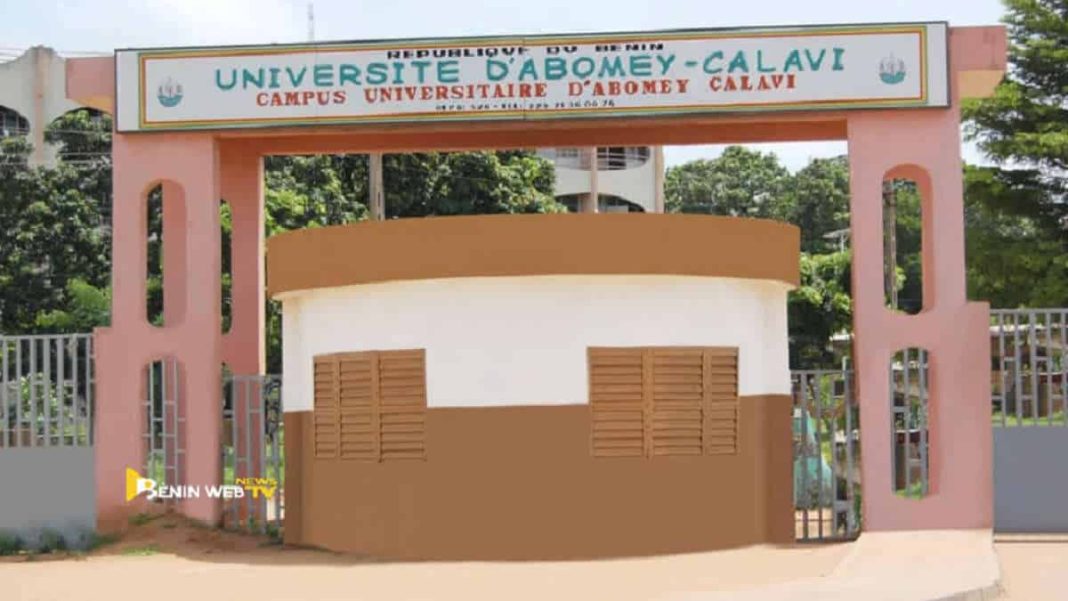The Université d’Abomey-Calavi (UAC), represented by its rector, heads of departments, and a university commission, has announced new decrees reorganizing master’s degree programs.
The Université d’Abomey-Calavi hosted, at the rectorate, a presentation session of the work carried out by the committee responsible for reorganizing master’s degree programs.
This involved announcing the implementation, starting from the 2025-2026 academic year, with effective implementation in 2026-2027, of decrees redefining the structure of master’s programs, particularly transferring research-type master’s courses from doctoral schools to Training and Research Units (UFR).
The rector of UAC, Professor Félicien Avlessi, personally initiated this reform, entrusting its technical coordination to a commission led by Professor Sylvain Kpenavoun Chogou, rapporteur and renowned agro-economist. The goal is to refocus educational responsibilities within UFRs and eliminate barriers between professional and academic tracks.
Transition year before full implementation
According to the commission’s recommendations, the 2025-2026 academic year will serve as a transitional phase. During this period, UFRs will continue admitting students into so-called professional master’s programs.
The “research” and “professional” labels will be maintained temporarily, but these designations will be phased out completely starting in 2026-2027. The intention is clear: integrate both professional and academic dimensions into a single master’s degree format.
“Master’s degrees will no longer be housed within doctoral schools,” emphasized Professor Chogou. “From now on, UFRs will oversee all master’s programs and harmonize curricula to meet the dual requirements of professional integration and doctoral studies,” he explained.
A challenge involving doctoral schools
Relocating master’s degrees away from doctoral schools poses new challenges, especially regarding university governance. Professor Félicien Avlessi called for collective reflection on this matter. “What will the relationship between departments, laboratories, and doctoral schools be going forward? I leave you to reflect on this. This decree will be applied. It is not subject to modification,” he reassured.
This call aims to encourage educational leaders to propose flexible collaboration mechanisms among academic entities, ensuring coherence between educational levels and scientific research standards.
Concrete implications for students
For students, this reform means enrolling exclusively in professional master’s programs in 2025-2026, without immediate impact on their educational path.
Then, starting in 2026-2027, master’s degrees will no longer explicitly bear the labels “research” or “professional,” although these orientations will still exist within the curricula.
Finally, beginning in 2026-2027, graduates from a professional master’s program who wish to enter a doctoral school will need to submit their applications, potentially with additional coursework requirements.
Through this reform, UAC aims to align its educational offerings with international standards while adhering to national directives. The commission now calls on the academic community to actively participate in finalizing necessary adjustments and supporting the profound transformation of Benin’s higher education landscape.



